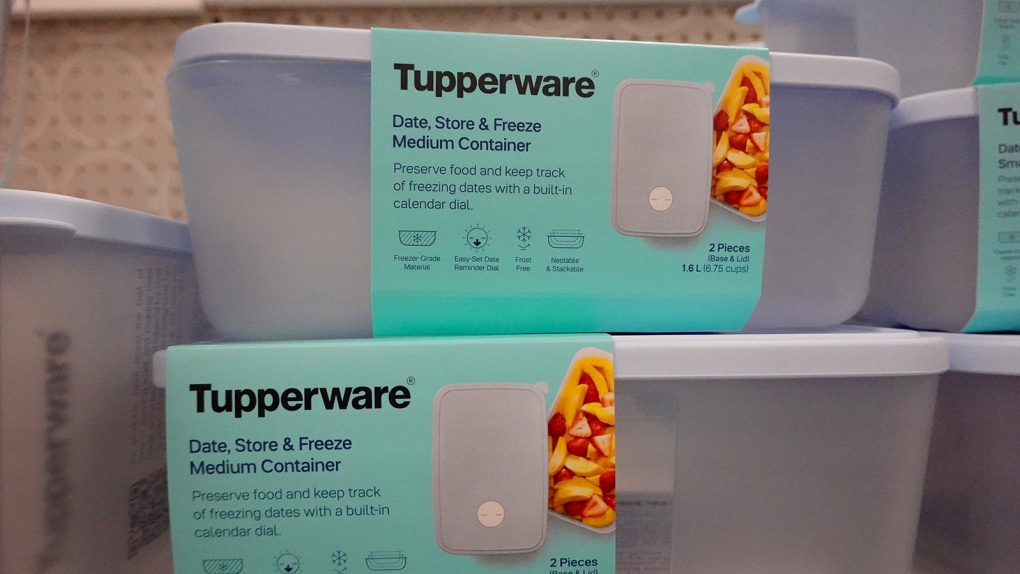
How long you can use your vintage Tupperware and other plastic food storage products
CTV
Since Tupperware, the iconic kitchen brand that's been a household name for decades, signalled recently that it might be going out of business, you might be wondering how long your stash of its food storage containers is safe to use — especially if it's vintage.
Since Tupperware, the iconic kitchen brand that's been a household name for decades, signalled recently that it might be going out of business, you might be wondering how long your stash of its food storage containers is safe to use — especially if it's vintage.
Figuring out the answer to that question for any type of reusable plastic food storage products — not just Tupperware — often comes down to understanding what they're made of.
Bisphenol A, more commonly known as BPA, is a chemical that, according to the United States Institute of Environmental Health Sciences, has been used for years in the production of certain plastics to make them more durable and shatter-resistant. Unfortunately, it can also make them potential health hazards.
In human studies, BPA exposure has been associated with a higher risk of a wide range of health conditions or issues, such as infertility, altered fetal growth of the fetus, attention-deficit/hyperactivity disorder and aggression among children, polycystic ovarian syndrome, endometriosis and heart disease, said Laura Vandenberg, a professor of environmental health sciences at the University of Massachusetts Amherst.
In addition to food containers, BPA has been used in various other products, such as shatterproof windows, water bottles and eyewear, and in resins coating metal food cans, bottle tops and water supply pipes. The composition of your plastic product can depend on the year you bought it, Vandenberg said.
Since March 2010, items Tupperware sells in the US and Canada are BPA-free, according to its website.
CNN has contacted Tupperware for comment but has not received a response.
